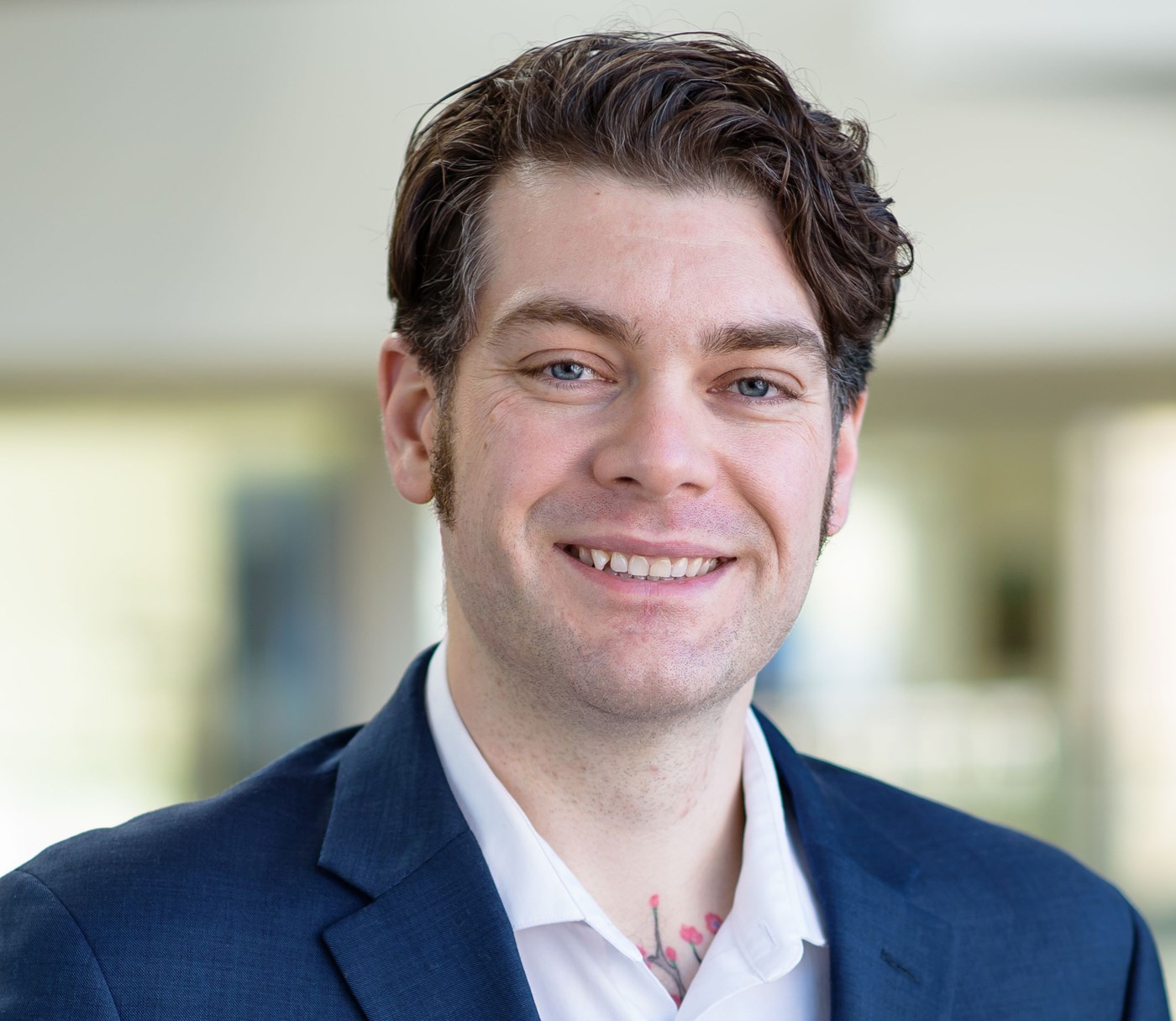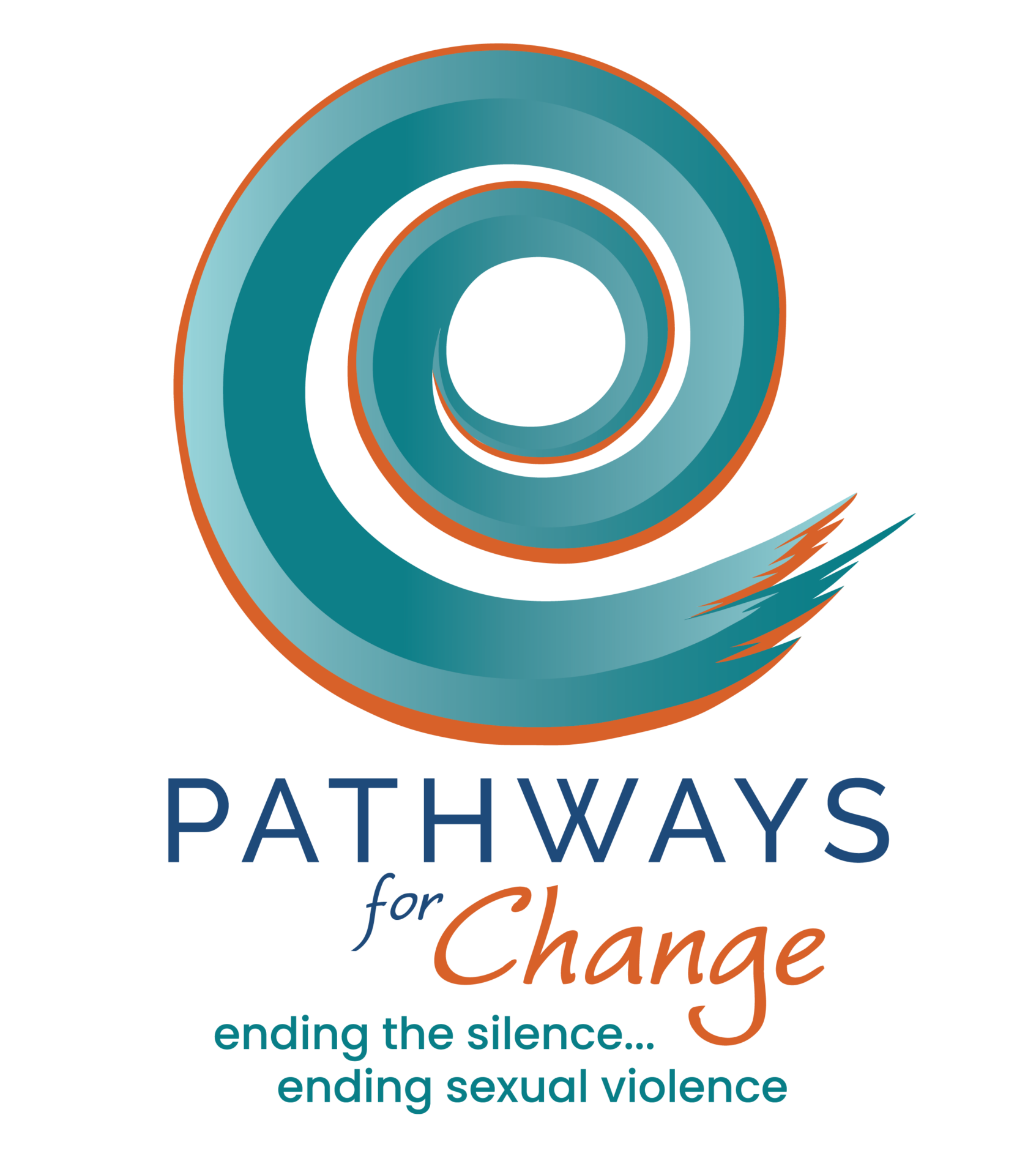AGENDA
Preventing Child Sexual Violence through Assessment, Treatment and Safe Management
April 9 & 10, 2025 | Virtual Event
Day 1: Wednesday, April 9
All times are in Eastern.
8:30 – 9:00
REGISTRATION
9:00 – 9:15
WELCOME
9:15 – 10:15

More Than Words: From Theory and Lip Service to Action and Practice
Apryl Alexander, Psy.D.
Trauma-informed care. Culturally responsive care. These frameworks have been introduced in systems to provide ethical and competent services to clients. While these concepts are widely discussed, proper implementation requires a shift beyond theory and lip service toward action and practice. A genuine commitment to these principles necessitates a radical re-evaluation of current practices and requires self-awareness and recognizing the limitations of one’s perspectives. Dr. Alexander’s presentation will engage us in critical dialogue and challenge us to examine how we can contribute to more just and equitable care for our clients.
Dr. Apryl Alexander is the Metrolina Distinguished Scholar and an Associate Professor in the Department of Public Health Sciences at UNC Charlotte. She also serves as Director of the UNC Charlotte Violence Prevention Center (VPC), which serves as a resource for transformative research, training, and technical assistance for communities, policymakers, and the public. She holds an M.S. and Psy.D. in Clinical Psychology from the Florida Institute of Technology, with concentrations in forensic psychology and child and family therapy. Dr. Alexander’s research has been published in leading journals including Journal of Forensic Psychology Practice; Criminal Justice Review; International Journal of Offender Therapy and Comparative Criminology; Child Maltreatment; Journal of Child Sexual Abuse; Journal of Sexual Aggression; and Sexual Abuse. She currently serves on the editorial board for Criminal Justice and Behavior and as an editorial consultant for the Journal of Black Psychology.
10:15 – 10:30
BREAK
10:30 – 12:00
WORKSHOPS
MASOC
Sibling Sexual Behavior and Abuse: Current Research and the SSB Mapping Tool
Sophie King-Hill, Ph.D. and Kieran McCartan, Ph.D.
This session will highlight the research evidence base, resources and approaches that have developed over the past four years in relation to sibling sexual behaviour and abuse, providing guidance for practitioners on how to work with this complex and often nuanced issue. We will start with an overview of the international research literature on this topic and will highlight a growing move towards recognising sibling sexual behaviour and abuse (SSB/A) as a family-based rather than individual issue, because the abuse is influenced by and occurs within an inter-connected family system. Then we will discuss a new, free and innovative free access sibling sexual behaviour mapping tool (SSB-MT) by Dr. Sophie King-Hill. For many practitioners, SSB/A presents a significant point of professional anxiety, which is addressed by the SSB-MT. The SSB-MT is designed to support practitioner thinking when planning support and interventions for families affected by problematic SSB/A. The session will address research carried out by Prof. Kieran McCartan on lived experiences of adult survivors of SSB/A, recounting their barriers and opportunities for disclosure as well as the lessons learned and opportunities for practice development that has emerged from their experiences.
MATSA
Bringing Prevention to Your Career and Community
Judith Zatkin, Ph.D.
This session will allow attendees to learn how to integrate primary prevention into their careers and communities. We will discuss best practices in prevention science, such as current public health models of prevention, successful prevention-based interventions, and emerging trends in the prevention field. Also discussed will be ways in which any attendee can incorporate bite-sized doses of prevention discussion into their work or their communities. Attendees will leave having created their own, personalized Prevention Toolbox, which will include strategies that they can incorporate into their work or their communities.
12:00 – 12:30
LUNCHTIME PANEL (Optional)
Showcasing the Work of MASOC’s 2024-2025 BIPOC Fellows
Libna Noor and Khumarii Rankins-Williams
12:30 – 2:00
WORKSHOPS
MASOC
Don’t Take the Bait: Working with Reluctant Clients
Lynn Sanford, LICSW
Are the clients pushing your buttons lately? Learn to listen to their difficult behavior as an alternative (and powerful) form of communication. Sorting out our feelings from the clients’ feelings can be an on-going process. Using clips from popular films, this workshop will focus on the dynamics of projective identification as well as ten self-care guidelines for the voluntary worker engaged in a dance with the involuntary client.
MATSA
#illegalimages: Treating Individuals Who Use Child Sexual Abuse Media
Elizabeth Griffin, MA, LMFT
The increase in the number of individuals presenting for treatment for the use of child sexual abuse media (child pornography) continues to grow. This workshop will review the current research related to the treatment of individuals who are convicted of sexual offenses related to the use of child sexual abuse media. The presenter will focus on specific treatment issues noted in the literature as important to address with individuals who engage with child sexual abuse media. Treatment issues related to emotion management, social skills development, compulsive sexual behavior, deviant sexual behavior, problematic technology use, and victim awareness will be discussed. Special attention will be paid to treatment activities grounded in “responsivity.” Participants will leave this workshop excited and armed with creative ideas that specifically address treatment issues for clients struggling with the use of child sexual abuse media.
2:00 – 2:15
BREAK
2:15 – 3:45
WORKSHOPS
MASOC
Effective Practices for Preventing Burnout and Fostering Compassion Satisfaction
LB Klein, PhD, MSW, MPA
Our collective work can be incredibly rewarding, but it can also take its toll on your well-being. How can you stay in this work for the long haul and promote the well-being of our supervisees, our colleagues, and ourselves? Being regularly confronted with the realities of the pervasiveness of trauma in our communities can leave helping professionals particularly prone to burnout, a prolonged response to chronic interpersonal stressors on the job. Using a trauma- and violence-informed care approach, this workshop will explore how to foster compassion satisfaction or the ability to receive gratification from our roles to promote individual and organizational sustainability. Based on what we know from research across various disciplines and practice wisdom, participants will engage in self-reflection, discussion, and case studies to learn and practice strategies and leave with the start of a plan of action to foster compassion satisfaction and prevent burnout.
MATSA
Clinical, Research, and Theoretical Implications of the Structure and Covariates of the Agonistic Continuum
Raymond A. Knight, Ph.D.
Research on sexual sadism has increased substantially in the past quarter century with a marked uptick during the revision of the DSM-5, when questions about the relation between paraphilic coercion and sadism emerged. In the research inspired by the DSM-5 debates, a new model of sadism, called the Agonistic Continuum, emerged that conceptualized the construct as a probabilistic Guttman dimension ranging from no coercive fantasies to paraphilic sexual fantasies and behaviors, to sexual arousal to humiliation and bondage, to sexual arousal to victim harm and fear, and finally to sexual arousal to torture. This symposium focuses on the data supporting this construct and its proposed structure. It illustrates how new data on the Agonistic Continuum suggest a theoretical reorganization of the paraphilias. Finally, it demonstrates the implications of the structure of new construct for assessing sadism and paraphilic coercion for dispositional and treatment decisions and for directing future research.
3:45 – 4:00
BREAK
4:00 – 5:30
WORKSHOPS
MASOC
Youth Voice: The Key to Improving PSB Understanding, Treatment, Prevention, and Programming
Clifford Ah-in-nist Sipes
Youth voice is vital to any work that serves young people and their families. This presentation will go over the value of youth voice in public health, prevention, intervention, and program development, and its impact to improve professional carers’ understanding, best practices, and effort to improve systems they work in. The material covered in this presentation will use youth voice on topics of PSB, its prevention, treatment, and general public and professional understanding.
MATSA
Working with Adult Males Involved in Domestic Sex Trafficking: Practical Guidance for Professionals
Katherine Gotch, LPC, CCSOT, ATSA-F
There has been an increased awareness and focus on human trafficking within the United States in recent years, with individuals convicted of sex trafficking crimes often being classified as “sexual offenders” within the criminal justice system. However, very little is known about the psychological characteristics or criminogenic risk/need factors of this offender population. This session will include a brief overview on domestic and international human trafficking, followed by an overview of the current research related to perpetrators of domestic sex trafficking in the United States. Practical guidance and strategies for the assessment, treatment, management, and supervision of this unique population will also be provided.
REFUND AND CANCELLATION POLICY: Refunds will not be given unless the conference is canceled. If you are unable to attend for any reason, you may designate a replacement. Please notify the conference coordinator as soon as possible of any changes via email at registration@masoc.net, or by phone at 413-344-0367.
Day 2: Thursday, April 10
All times are in Eastern.
9:00 – 9:15
WELCOME
9:15 – 10:45
WORKSHOPS
MASOC
Porn Is Not the Norm: Young people, autism and the impact of porn
Maree Crabbe and Wenn Lawson, Ph.D.
For autistic young people, pornography’s influence can be even more challenging. Monotropism, the key characteristic of autism, can lead to autistic young people being particularly vulnerable to the impacts of pornography. The messages conveyed by pornography can be a source of confusion and concern, and shape unrealistic and unhealthy sexual understandings and expectations. At its worst, pornography exposure can increase the likelihood of autistic young people becoming a victim or perpetrator of sexual harm.
This workshop will explore how pornography’s impacts can be amplified for autistic young people, and how we can provide tailored support to prevent pornography’s harms to them.
MATSA
An Exploration of ADHD, Sex and Sexual Offending
Lyne Piché, Ph.D.
We will discuss neurodiversity and sexuality with an aim to better understand the impact of neurodiversity on criminal justice involvement and sexual offending. We will explore the impact of ADHD on sexuality discussing key features that distinguish neurodivergent clients from neurotypical clients including themes related to hypersexuality, impulsivity, sexual impulsivity/sexual eagerness, struggles with transitions, distractions, sensory issues, sexual problems, relationship problems and paraphilias. In addition, we will outline essential treatment adaptations for this population, including the importance of addressing ADHD as a key component to ensure risk reduction. In this presentation, we aim to do the following: define neurodiversity, discuss key elements about what we know about sex and ADHD based on current research literature, identify some key indicators for the presence of ADHD and outline treatment adaptations to consider for this population.
10:45 – 11:00
BREAK
11:00 – 12:00

MATSA KEYNOTE
How Random Moments Shape Lives and Perspectives
Kelly Socia, Ph.D.
Life is a series of unpredictable moments and opportunities that shape who we become and where we end up. In this keynote, I reflect on the random events that led me to a career in criminology and to standing before you today. Through the lens of my research on individuals convicted of sex offenses, I will explore how life’s complexities and unforeseen circumstances can influence outcomes, sometimes leading to devastating consequences. By understanding the intricate and often random paths that shape human behavior, we can approach these individuals with greater empathy and recognition of their humanity. This keynote encourages us to remain open to change, to embrace kindness, and to see the full person behind a label—both in our work and in our own lives.
Kelly M. Socia, Ph.D., is a Professor in the School of Criminology and Justice Studies at the University of Massachusetts Lowell (UML), and is the assistant director of faculty research projects at the UML Center for Public Opinion. Dr. Socia has published both quantitative and qualitative research in top academic journals in criminology and penology, and has experience examining large-scale criminal justice datasets, designing and analyzing public opinion surveys involving experimental procedures, quantitative modeling, crime mapping, and qualitative coding and analysis. His research interests include public policy, public perceptions, sex offense policies, reentry, public health, and crime and media coverage. Dr. Socia has dozens of peer-reviewed publications on the efficacy and public perceptions of criminal justice policies (e.g., drug-related policies, sex offense policies), police-community interactions, and media coverage of crime and policy issues. Dr. Socia has communicated research findings to a variety of criminal justice system officials, including policymakers, judges, and attorneys. He has given multiple keynote talks and plenaries on how to effectively disseminate scientific information about stigmatized populations to the public and policymakers.
12:00 – 12:30
LUNCHTIME DISCUSSION
Looking Ahead: The Future of Our Field
Kevin Creeden, M.A., LMHC and David Prescott, LICSW
12:30 – 2:00
WORKSHOPS
Sexting, Sextortion, and Generative Artificial Intelligence: Updating Internet Safety Messages to Counter the Latest Threats
Susan Kennedy, Ed.M.
Generative Artificial Intelligence (GAI) like many new technological advances before it brings with it exciting new opportunities as well as new risks. How should the accessibility of GAI change our internet safety messages for children, youth, and parents? At the National Center for Missing & Exploited Children, we receive reports that include youth produced content depicting children of all ages. Investigating these cases is difficult enough, but how can we prevent a crime when the victim is the one creating the images used to exploit them or when the images of the child are created using GAI? This workshop will include an interactive discussion of how we must update prevention messaging to children, adolescents, and adults about youth produced content and nonconsensual image sharing using a developmental perspective. We will then discuss how to apply a trauma-informed approach to tailoring prevention messages to specific age groups regarding self-generated and GAI materials. Additionally, we will share free resources that can be used in your community to address these issues with children of all ages.
MATSA
Sexual Choking and Consensual Non-Consent (CNC): What Professionals Need to Know
Debby Herbenick, Ph.D., MPH
Over at least the past decade, rough sex behaviors have rapidly increased as part of younger adults’ sexual repertoires. For example, 1 in 3 young adult US women were choked the last time they had sex and about 10% of college students report having engaged in consensual non-consent (CNC). These shifts have occurred in mainstream sexual culture, often apart from many of the principles and harm reduction practices commonly associated with BDSM and kink communities. In this talk, Dr. Debby Herbenick will share findings from her team’s research on rough sex practices, with a focus on sexual choking and CNC. The presentation will address issues such as prevalence, frequency, communication, consent, health implications, and violence prevention.
2:00 – 2:15
BREAK
2:15 – 3:45
WORKSHOPS
MASOC
Promoting Anti-racist Approaches to Addressing Illegal Sexual Behavior in Black Youth
Rebecca Fix, PhD and Terrinieka Powell, PhD
Deep-seated social and structural injustices increase risks for sexual exploitation and assault among Black children, adolescents, and adults in the USA and across the globe. Within the USA, these risks also contribute to unjust responses to Black individuals who survive or engage in illegal sexual behavior. When a young Black person is the recipient or initiator of illegal sexual behavior, they are at greater risk for inequitable and unjust responses by individuals in the community, professionals who work in the juvenile legal system, and society at large. Systemically racist responses in the child welfare system, juvenile and criminal legal systems, and systems in which mandatory reporters frequently work decrease the likelihood of Black youth receiving supportive services, creating a trajectory of poor health outcomes and limited life advancement. Addressing illegal sexual behavior among Black youth is important for equity in sexual violence prevention. In doing so, we must center racism in our conversations about illegal sexual behavior responses.
MATSA
What Have We Learned from 80 Years of Research on Sexual Recidivism: Evidence from an international study
Patrick Lussier, Ph.D.
Sexual recidivism has been the subject of research for over 80 years. However, myths and misconceptions remain widespread, impeding the development of evidence-based policies aimed at preventing sexual offenses while recognizing issues of equity, diversity and inclusion. This situation can be partly explained by the uneven quality of research and the hegemony of actuarial tools which have limited the development of risk assessment and risk management practices. To address the dense but uneven and disjointed literature, the workshop will present key findings from a systematic review and meta-study on sexual recidivism research conducted in North America since 1940, which allowed identifying, among other things, a sexual recidivism drop since the 1970s. This presentation will provide a contextualized and critical overview of what we know and don’t know about recidivism, while addressing issues of equity, diversity and inclusion issues, against the backdrop of key methodological issues, challenges, and shortcomings.
3:45 – 4:00
BREAK
4:00 – 5:30
WORKSHOPS
MASOC
Trauma-Focused Cognitive Behavioral Therapy for Problematic Sexual Behavior Among Adolescents: An Integrated Approach
Jamie Yoder, PhD, MSW and Melissa Grady, PhD, MSW, LCSW
Compared to the general population, adolescents with problem sexual behaviors (PSB-A) have elevated rates of childhood adversity and trauma. Early trauma can contribute to a number of risk factors associated with sexual offending during adolescence including emotional dysregulation, sexual arousal, difficulties with interpersonal relationships, and cognitive processing struggles. Yet, treatment programs for PSB-A often do not address such trauma sequela and may predominately focus on reducing offending behaviors. It is thus critical to train PSB-A clinicians to address both PSB and trauma. Trauma-Focused Cognitive Behavioral Therapy (TF-CBT) combined with the gold standard of PSB work has the potential to provide therapists with the guidance they need to address both needs simultaneously. In this workshop, we will present our conceptual model that integrates TF-CBT for PSB-A and discuss results from our pilot feasibility study on training and implementation of TF-CBT for PSB-A in community practice and juvenile justice settings. We will also discuss our quasi-experimental study. We offer practical trauma-specific implications for the field, and opportunities for training partnerships.
MATSA
Experiences Using the SAPROF-SO in a Community-Based Assessment and Treatment Service
Crystal L. Cookman, Psy.D. and Derek T. Edge, LCMHC
The SAPROF-SO is a structured professional judgement tool that supports the strengths-based approach in measuring protective factors among individuals with a history of sexual offending. The research indicates strong psychometric properties to include recent confirmations of predictive validity. This presentation will describe the use of the SAPROF-SO in a community-based risk assessment and treatment service in NH. This talk will include a brief overview of SAPROF-SO factors, the empirical basis that supports its use, descriptive statistics on our population receiving a SAPROF-SO assessment, the risk level and management recommendations generated using the SAPROF-SO, tying those to specific treatment goals and ideas for measuring progress. Presenters will also share their impressions of the utility of the tool and anecdotal trends observed.
REFUND AND CANCELLATION POLICY: Refunds will not be given unless the conference is canceled. If you are unable to attend for any reason, you may designate a replacement. Please notify the conference coordinator as soon as possible of any changes via email at registration@masoc.net, or by phone at 413-344-0367.
Thank you to our sponsors






